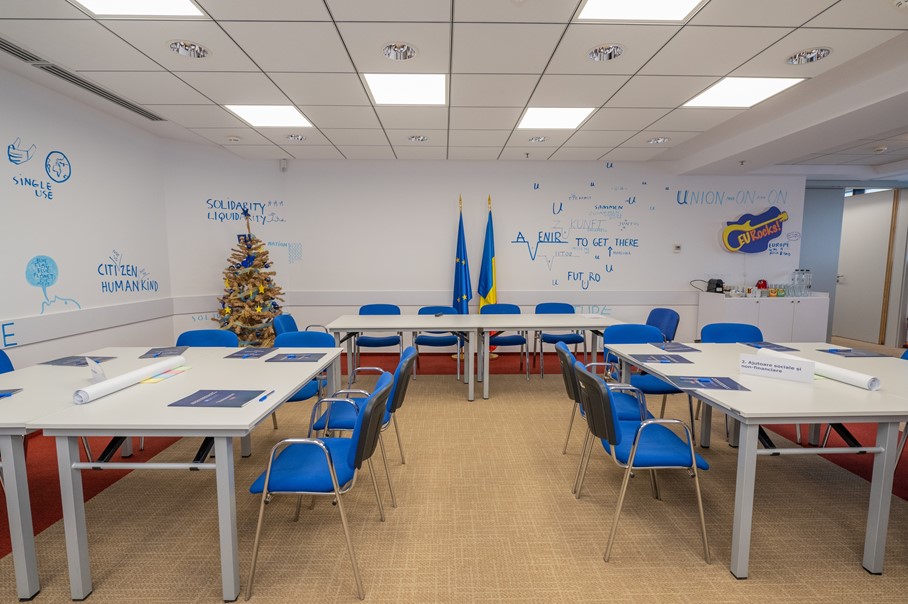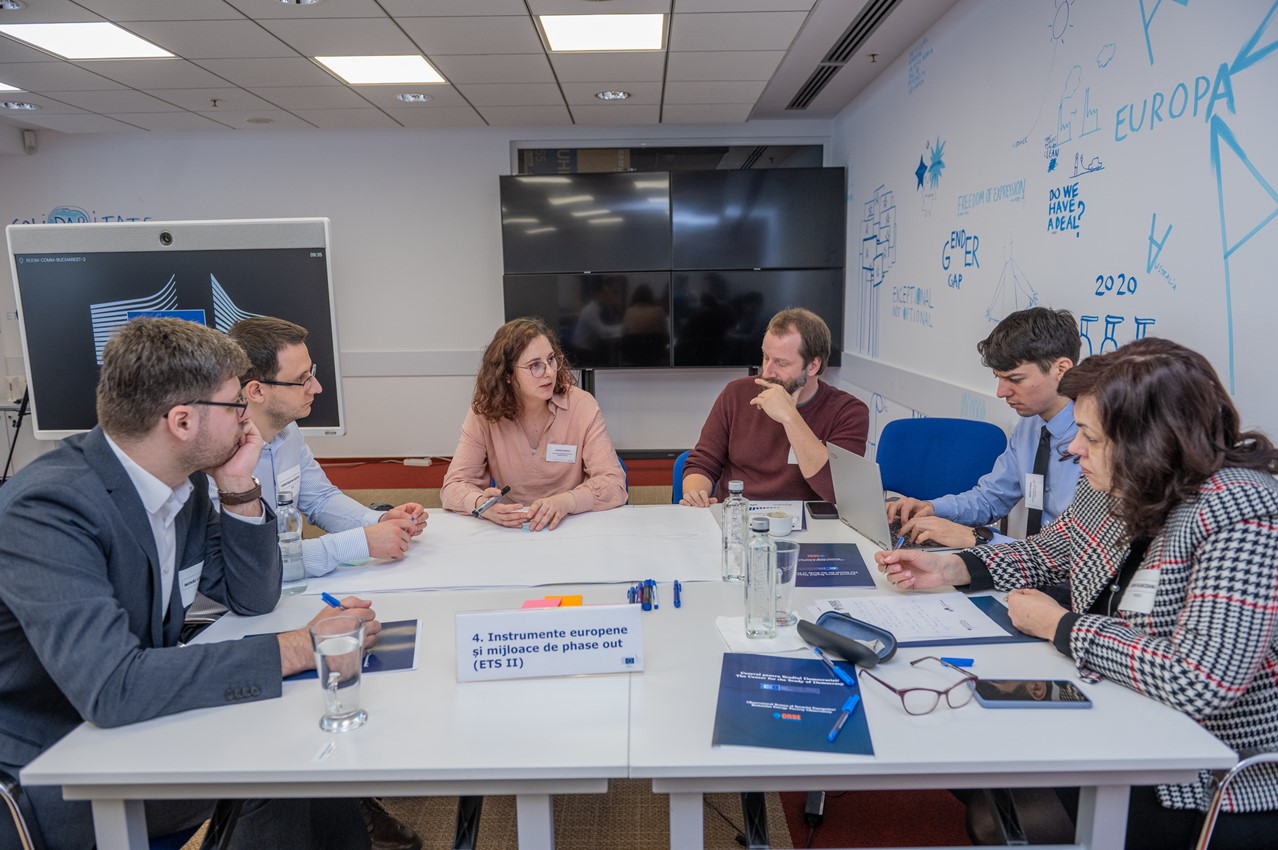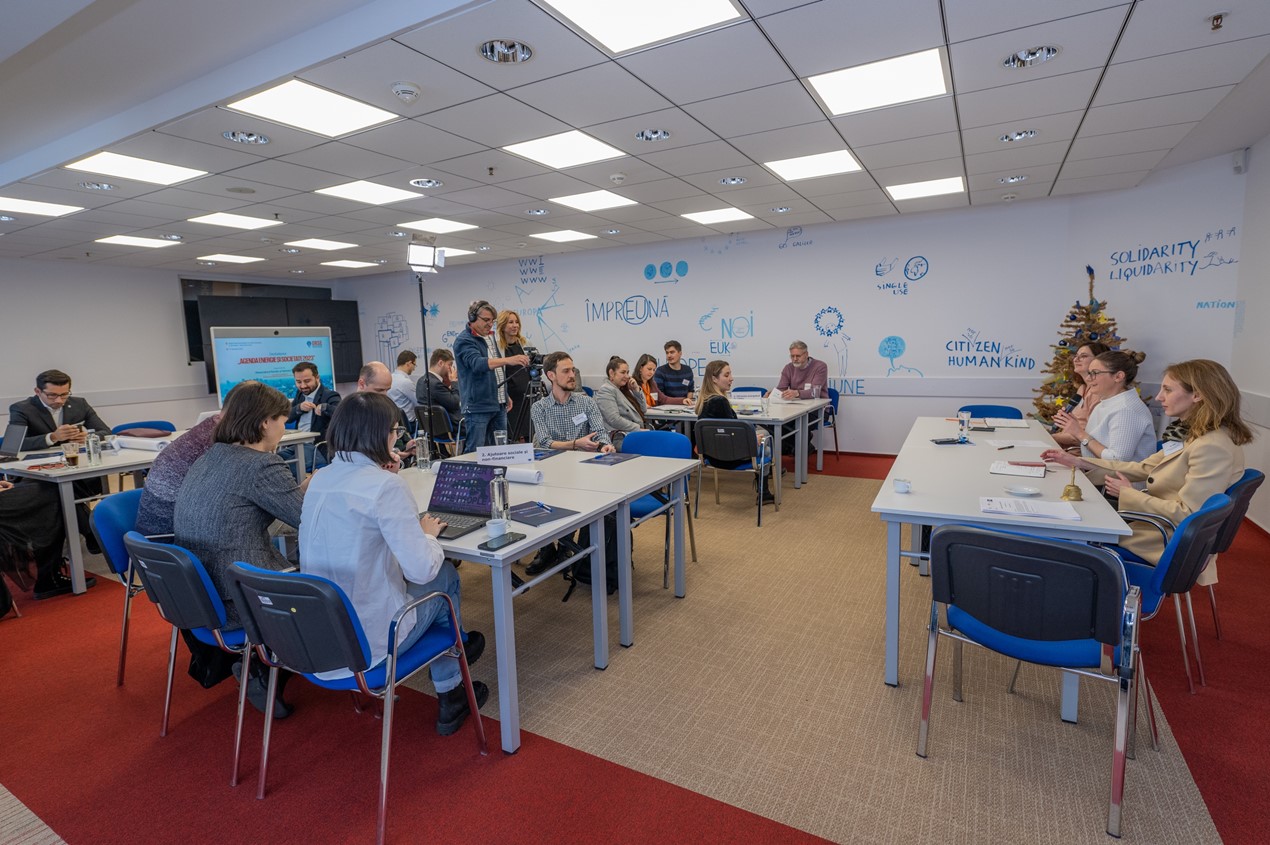Building Readiness for Socially Just Carbon Pricing in Central and Eastern Europe
by Sofia Shabafrouz, GIZ / EUKI
In December 2022, the European Parliament and European Council agreed to an extended Emissions Trading System (ETS) for the transport and building sectors. ETS 2 is scheduled to commence in 2027. The expected increase in energy costs from carbon pricing will have a strong social justice dimension, especially in Central and Eastern European (CEE) countries with lower household incomes and a greater reliance on fossil energy. The EUKI project ‘Socially Just Carbon Pricing Policies in CEE’ reaches out to responsible policy-makers to help support vulnerable populations in Poland and Romania.

Extending carbon pricing to additional sectors, particularly road transport and construction, is critical to achieving the EU’s long-term climate targets and will constitute a central policy of the European Green Deal framework. A new Social Climate Fund is being developed to ensure that the policy does not leave vulnerable households and transport users behind. Nonetheless, there is much work to be done in the years to come to determine precisely who should be supported, with what measures, and how these measures should be implemented. Ultimately, vulnerable groups need to be effectively identified and compensated if carbon pricing is to garner and maintain popular support over time.
‘The EU has earmarked considerable funding for the Social Climate Fund to target vulnerable groups. While some of the funding may go to income support measures, most funding should go towards green investments such as energy efficiency retrofits and public transport that reduce dependence on fossil fuels. The problem is, there is no common approach to identifying vulnerable groups and assessing the potential impact of this policy on them. And there is no awareness of the kinds of measures that could effectively target these groups and therefore be eligible for the Social Climate Fund.’
Alexander Eden, advisor at adelphi
A knowledge base to build readiness
The EUKI project ‘Socially Just Carbon Pricing Policies in CEE’ aims to strengthen the knowledge base across Europe, and more especially in Poland and Romania, on carbon pricing for mobility and heating, its potential distributive impact, and options to effectively address this impact. The project partners Center for the Study of Democracy (CSD), WiseEuropa, Öko-Institut e.V. and adelphi are working to deepen knowledge about the effects of carbon pricing on vulnerable groups, find appropriate avenues for compensation, and build understanding of and support for carbon pricing beyond the climate community. The intention is to raise awareness of the pressing challenge among the project’s target groups – policymakers at the EU and national levels, climate and social policy experts, civil society actors, and academics – with a view to effectively bridging the gap between climate and social policy.
‘The legislation has just been agreed. We’re observing that things are moving faster at EU level than in CEE countries, where an EU-wide carbon price affecting people’s mobility and energy use at home still seems far off,’ explains Alexander Eden, advisor at adelphi, Europe’s leading independent think-and-do tank for climate, environment, and development. ‘With the new carbon pricing laws set to take effect in the next few years, it is crucial to begin building readiness,’ Eden argues. ‘If people are unfairly impacted by ETS 2, then we risk a political backlash that could undermine Europe’s climate targets and potentially drive a wedge in European society.’ His colleague Melania Lese from CSD reports similar impressions from Romania: ‘The Romanian Government is trying to keep up with the current energy crisis and thinks that they have time to figure out how to implement ETS 2 in a socially balanced way. They need to start reflecting on the long-term impact, as there is a big risk of growing energy poverty.’


Initial findings
The first step for the project team was to ascertain the potential impact on households across all EU Member States, focusing on different ways of identifying vulnerable groups. They found that, while CEE countries are particularly susceptible to rising energy costs (due in part to low household incomes, high dependence on fossil fuels, and a large rural population), every country in the EU, including the wealthier ones, has vulnerable population segments.
This means the country context is important, with each nation finding itself in a unique historical, cultural and socio-economic situation. This requires a drill down to find nationally appropriate solutions. Take Poland and Romania, for instance. Coal is still commonly used to heat homes in Poland, and the poorest ten per cent of households are expected to spend nearly five per cent of their income on the additional carbon cost of ETS 2. By contrast, 80 per cent of the poorest Romanian households use wood as their primary heating source, which is not covered by ETS 2. ‘The large informal wood economy in Romania makes it difficult to assess the full impact of a carbon price on Romanian households,’ explains Lese.
The research findings and recommendations are set to be published soon. They will include an in-depth policy report, followed by country analyses for both Poland and Romania, and will be complemented by a series of topical policy briefs. In order to disseminate their findings and raise awareness regarding the socially just transition, the project partners will then host a series of outreach events, including national workshops in Poland and Romania, a high-level seminar for policy-makers and experts from across the CEE region, a policy workshop in Brussels addressing the EU policy community, and a one-day virtual training course on the social dimensions of carbon pricing. The findings will be made available on the project page and on the EUKI website.
